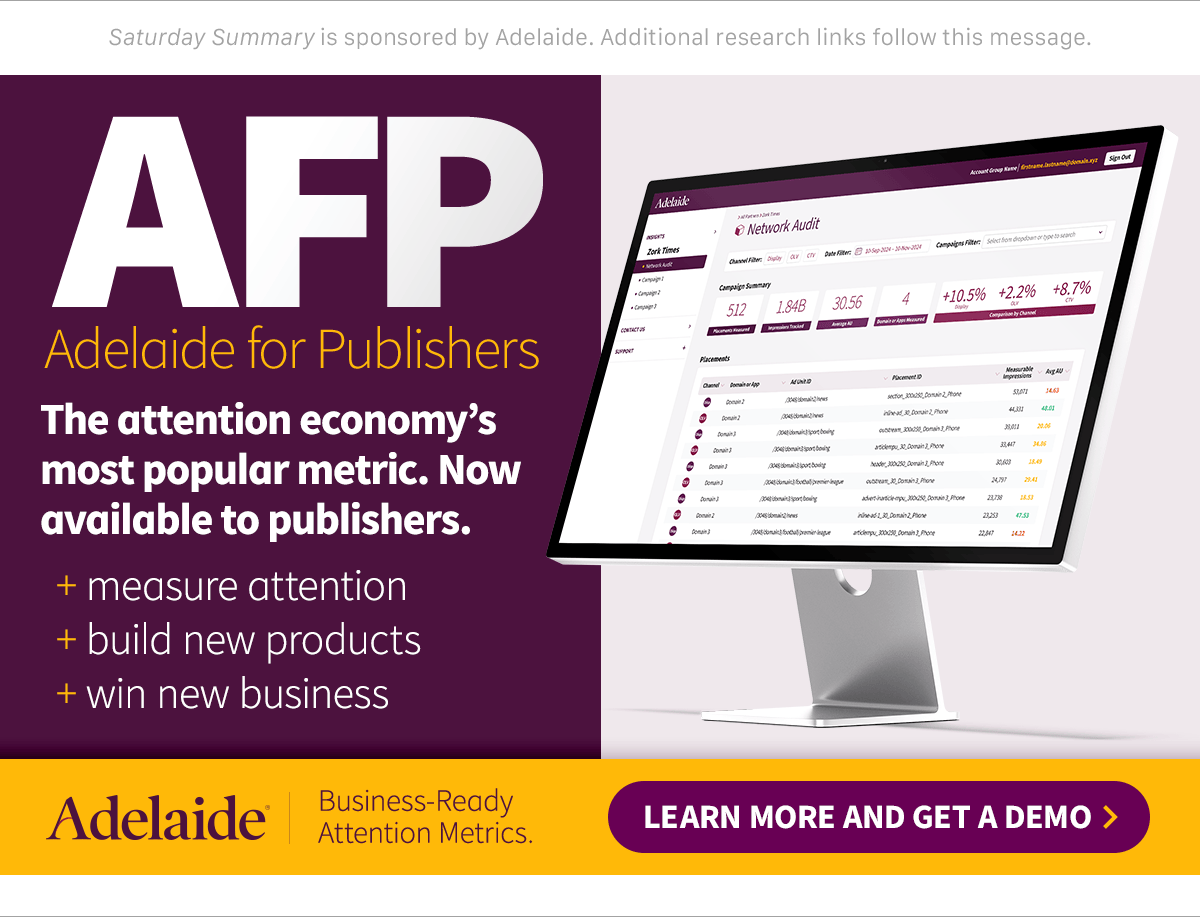Madison and Wall: Saturday Summary for April 27, 2024
1Q24 results from Meta, Alphabet, Snap and Spotify, Comcast and Charter illustrate two-track ad market. Meanwhile agencies fare ok as they look to new service bundles.
As I’ve mentioned previously, Madison and Wall is hiring! For more information, please check out https://madisonandwall.com/join-us or email brian@madisonandwall.com.
This was a very busy week, and one where it was almost impossible to keep up on all of the important news flow related to the state of the ad market, especially during a deluge of earnings on Thursday.
The big takeaway is that advertising revenue likely accelerated in 1Q24, with constant currency/organic growth for Meta at +26% (with Chinese export market advertising growth coming in ahead of that figure, per the estimates I produced), Google +14%, Microsoft’s Search and News business +12%, Snap +15% and Spotify +19%. Roku’s numbers remain difficult to identify given limited disclosures, although it appears their ad business was probably up by double digits, too. By contrast, more traditionally-oriented / single-country and non-digital platform-focused media companies which reported were relatively weaker with Charter’s ex-political ad revenue essentially flat and Comcast’s NBCU national ad revenue likely down by low single digits on a like-for-like basis. Looking forward to next year and beyond, I also provided an overview of expectations for the consequences of the postponement of third-party cookie deprecation by Google.
Meanwhile, with IPG and WPP reporting I was able to produce specific benchmarks for global and regional growth rates for the largest agency holding companies during 1Q24, which collectively appear poised to grow better than the rest of the “traditional” media industry.
Relatedly, I wrote about the nature of “bundles” in an economic sense. Here I illustrated why pairing media agency services with principal-based trading in one overall offering is not unlike Wall Street effectively bundling equity research and equity trading, and how conflicts of interest exist regardless of whether or not services are sold on a bundled or unbundled basis. The bigger point is that for varying reasons, some customers for some services exhibit an unwillingness to pay directly for what should be the most valuable services, leading to trading practices that some may deem undesirable but which might at least leave clients better off than they otherwise would be.
Finally, you can hear additional commentary from me on another live appearance on Bloomberg TV Surveillance this past week here starting at the 41:54 mark. Beyond talking about Mark Zuckerberg’s necklace, we also discussed a wide range of considerations around Meta, AI-based advertising, the FTC’s Lina Khan and the likely forced exit of TikTok from the US ad market.





